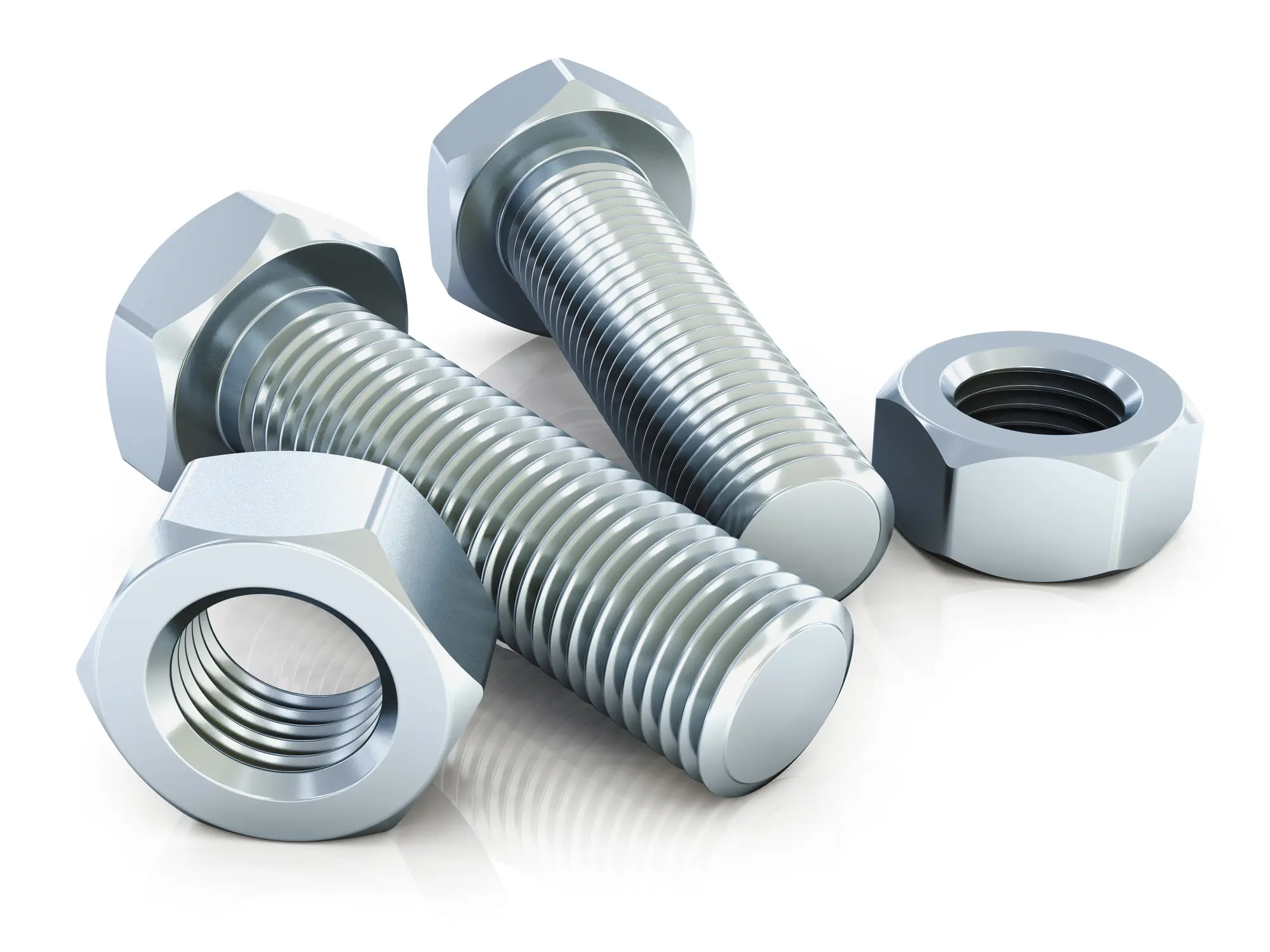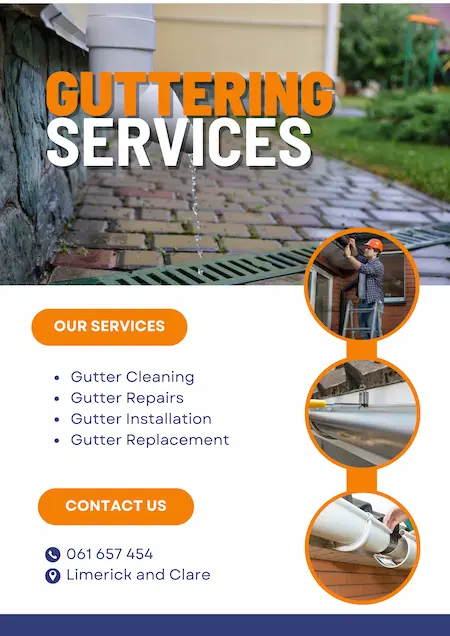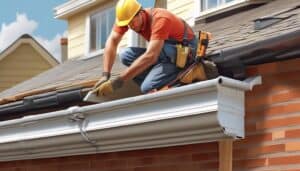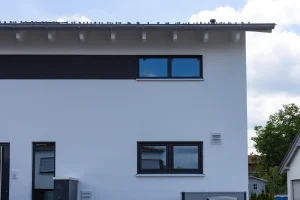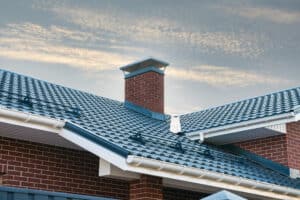Gutter bolts are essential fasteners that securely attach your gutters to the fascia board. This guarantees stability and long-lasting performance. These gutter bolts and nuts are specifically designed for gutter installations. This provides a robust connection that can withstand various environmental conditions. Typically, they come coated in bright zinc plating. Which offers excellent resistance to corrosion, making them durable even in harsh weather.
When you’re installing gutter bolts, you’ll often need to pre-drill holes in the gutter to fit the bolts properly. This step guarantees a snug fit. This helps distribute the weight evenly along the gutter system. Once the holes are drilled, you secure the bolts with nuts and washers. This creates a tight, flush finish that looks neat and professional.
Gutter bolts are available in different sizes. This allows you to choose the right one based on your specific gutter installation needs. By guaranteeing a strong, stable attachment, these bolts help prevent your gutters from sagging or shifting over time. This not only maintains the efficiency of your gutter system but also its longevity. Properly installed gutter bolts are key to a well-functioning gutter setup.
Key Takeaways
- Gutter bolts are essential for securely attaching gutters and preventing leaks.
- Gutter bolts are designed to withstand harsh weather conditions and resist corrosion for long-term durability.
- Gutter bolts come in various sizes and are coated with zinc plating for corrosion resistance.
- Proper installation and maintenance of gutter bolts are crucial. This is to prevent water damage and maintain a watertight seal.
Why are Gutter Bolts Important?
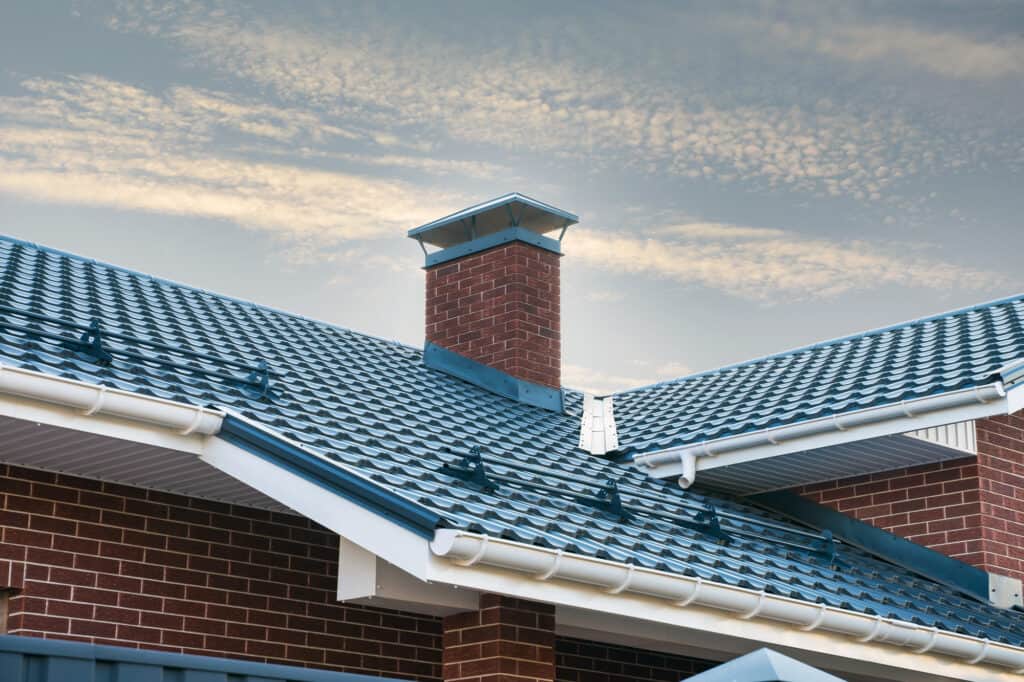
Gutter bolts are crucial for maintaining the structural integrity and efficiency of your gutter system. They ensure secure attachment, and proper alignment, and prevent water damage. Constructed from corrosion-resistant materials like stainless steel with zinc coating. They can endure environmental stress.
High-quality bolts help direct water away from your property, reducing the risk of leaks and structural issues. Proper installation and regular maintenance checks extend the lifespan of your gutter system. Gutter bolts securely fasten gutters to the roofline. This prevents structural issues and water damage.
They maintain the integrity of gutter systems. This ensures alignment and attachment under various conditions. Typically made from stainless steel and coated with zinc for corrosion resistance. Gutter bolts handle harsh weather, heavy rainfall, and debris buildup.
Choosing appropriate gutter bolts, considering size and coating, is crucial. They must support the weight and stress from water flow and external elements. Poor-quality or improperly installed bolts can cause sagging gutters. Also, leaks, and roofline erosion, lead to costly repairs.
Installation requires precise positioning and tightening to ensure a watertight seal. Regular maintenance checks detect wear or corrosion. This preserves the system’s longevity and efficiency. Understanding gutter bolts is essential for safeguarding structural health and preventing water-related issues.
What Are The Types of Gutter Bolts?
Gutter bolts come in various types to meet specific installation needs. Common types include:
- Standard bolts: Serve general purposes for regular gutter installations.
- Heavy-duty bolts: Offer increased strength and durability for larger loads and harsher weather conditions.
- Self-tapping bolts: Create their own threads during installation, simplifying the process.
- Decorative bolts: Feature a countersunk head for a flush finish, enhancing visual appeal.
Selecting the appropriate bolt type ensures the system’s structural integrity. Proper alignment of gutter sections before tightening bolts avoids gaps or misalignments. Use a compatible gutter bolt and nut combination. This is to ensure stability and strength over time. Each bolt type secures gutters, prevents leaks, and ensures long-term functionality.
What are the Varieties and Specifications of Gutter Bolts?
You’ll find that gutter bolts come in various gutter bolts sizes and coatings. This is to meet different installation needs. Whether you’re working with standard or custom gutter systems. Selecting the right size is important for guaranteeing a secure fit. These bolts typically range in length and diameter, allowing you to match them with the specific requirements of your project.
In terms of coatings, gutter bolts often feature a Bright Zinc Plated (BZP) finish. This coating makes them highly resistant to corrosion. Which is essential for maintaining the longevity of your gutter system. Corrosion resistance ensures that the bolts won’t deteriorate quickly. Even when exposed to harsh weather conditions.
Each gutter bolt comes with a square nut designed for a secure attachment. This combination is critical for forming a watertight seal. This prevents leaks and ensures the efficiency of your gutters. The square nuts provide a stable grip, reducing the risk of the bolts loosening over time.
Choosing the right bolt and nut combination is a key step in maintaining the structural integrity of your gutters. By paying attention to size and coating specifications, you’ll guarantee that your gutter system remains robust and functional for years to come.
How To Install Gutter Bolts?
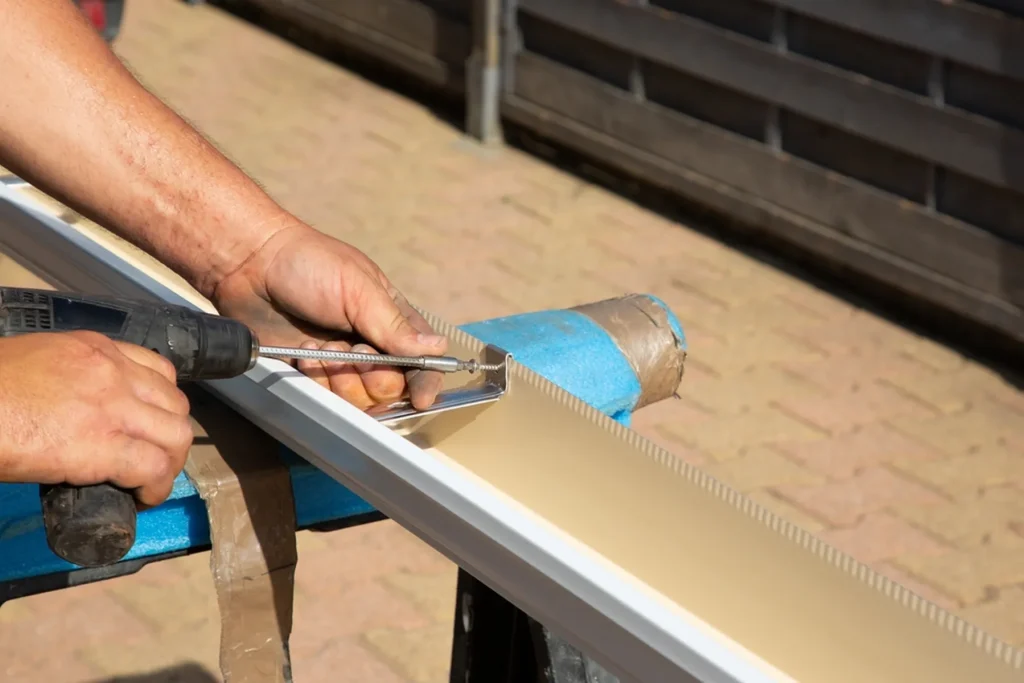
Proper installation of gutter bolts is vital for the structural integrity and efficiency of the gutter system. Align gutter sections before tightening bolts to avoid gaps and misalignments, which can cause leaks.
Once aligned, pre-drill holes in the gutter where the bolts will go. This helps guide the gutter bolts and nuts and reduces the risk of damaging the gutter material.
Next, insert the bolts through the pre-drilled holes and secure them with nuts and washers. Use a wrench to tighten the bolts. This ensures a snug fit without overtightening, which could damage the gutter or the fascia board. Properly secured bolts will provide stability and support to the entire gutter system.
Regular inspection is important. Check the bolts for any signs of rust or damage. If you find any rusted or damaged bolts, replace them promptly. This is to maintain the structural integrity and prevent leaks.
Cleaning the bolts regularly helps prevent corrosion. This will ensure they remain functional for a long time. Proper installation of gutter bolts and nuts is key to achieving a watertight seal and long-term durability. This keeps your gutter system efficient and reliable.
How Do You Maintain and Replace Gutter Bolts?
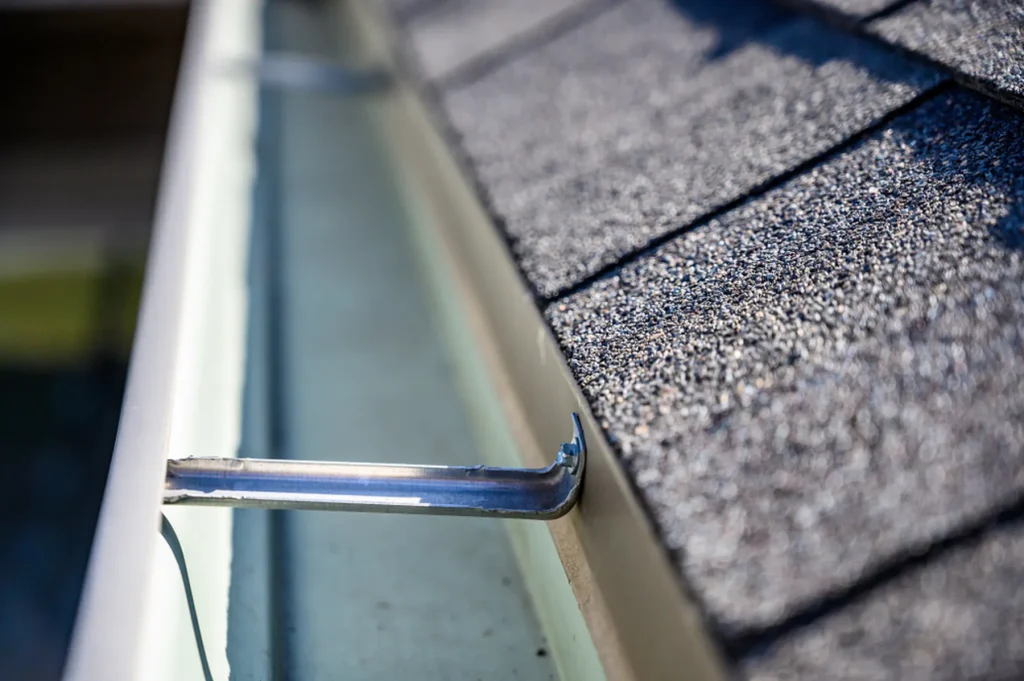
Regularly inspecting and maintaining your gutter bolts is essential. They guarantee the system remains secure and leak-free. Start by checking for any signs of rust or damage.
Rust can weaken the bolts, compromising the integrity of your gutter system. If you spot any corroded or damaged bolts, replace them promptly to maintain a strong attachment to the fascia board.
Next, make sure to tighten any loose bolts. Loose bolts can lead to gaps and misalignment, resulting in water leakage. Use a wrench to ensure each bolt is snug but not overly tight, as excessive force can strip the threads or damage the gutter.
Proper maintenance doesn’t just stop at inspection and tightening. It’s also crucial to periodically clean your gutters to prevent debris buildup. Which can put unnecessary strain on the bolts and cause them to loosen or fail.
Taking these steps will greatly contribute to the longevity of your roofing system. Well-maintained gutter bolts not only keep your gutters securely in place. They also prevent water damage to your home’s foundation and walls. Regular maintenance is a small investment that pays off in the long run.
